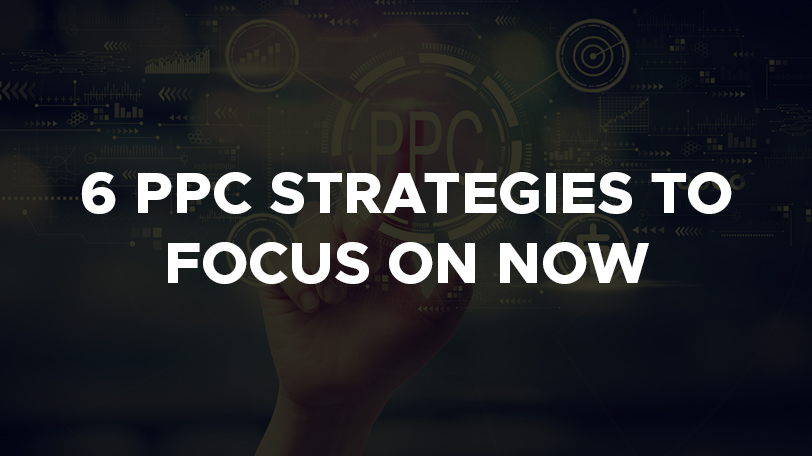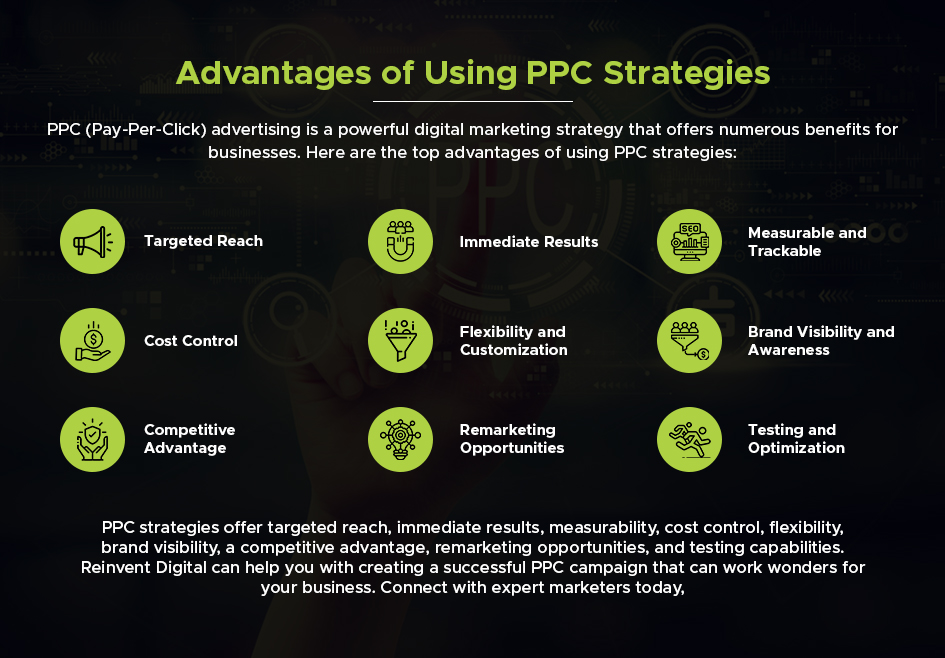- Enquiry For Sales: +91 7428094567
Enquiry For Jobs : +91 9116139991 - Request for quote
Blog

PPC can be a game-changer for your business, but only if you play the game right. In the next few lines, you’ll be taken on a journey to understand what a PPC strategy is, its importance, and the best strategies you should be focusing on right now. Buckle up, let’s get started!
Before you dive head-first into the complex world of PPC, it’s important to get a handle on what exactly a “PPC strategy” is. In its simplest form, a PPC strategy is a plan of action designed to reach your business’s marketing goals using Pay-Per-Click advertising. But, as they say, the devil is in the details. To create an effective PPC strategy, you need to understand the intricacies of your target audience, the competitive landscape, and the platforms where you’ll be launching your PPC campaign and devise PPC advanced strategies.
Now, you might be thinking, “Why should I focus on PPC strategies? Isn’t it just about bidding on keywords?” Well, not quite. While keyword selection is a part of PPC, a well-crafted strategy goes far beyond that. It involves careful planning, constant monitoring, and regular optimization. By focusing on your PPC strategy, you can ensure that your campaigns are not only reaching your target audience but also delivering a strong return on investment (ROI).
PPC allows you to target your ads to specific demographics, interests, and locations. This level of precision ensures that your ads reach the right audience, increasing the chances of attracting qualified leads and potential customers. By focusing on PPC strategies, you can maximize the effectiveness of your advertising budget by reaching the right people at the right time.
Unlike organic search engine optimization (SEO) efforts, PPC campaigns can generate immediate results. Once your ads are set up, they can be live and visible to users within minutes. This speed of implementation makes PPC an ideal strategy for businesses looking for quick visibility, lead generation, or sales.
PPC provides detailed and comprehensive data about the performance of your campaigns. You can track metrics such as impressions, clicks, conversions, and return on investment (ROI). This data allows you to analyze the effectiveness of your campaigns, make data-driven decisions, and optimize your strategies accordingly.
PPC platforms like Google Ads and Bing Ads offer a high degree of flexibility and control over your campaigns. You have the ability to set daily budgets, adjust bids, test different ad variations, and target specific keywords. This level of control allows you to fine-tune your campaigns based on performance, ensuring that you get the best possible results.
PPC advertising ensures that your brand is prominently displayed at the top of search engine results pages (SERPs). Even if users don’t click on your ads, they still see your brand name and message, increasing brand recognition and awareness. This visibility can have a positive impact on your overall marketing efforts and help in building a strong brand presence.
In highly competitive industries, PPC can give you a significant edge over your competitors. By bidding on relevant keywords and targeting specific audiences, you can outperform competitors who rely solely on organic search results. PPC allows you to occupy valuable ad space and gain visibility where your competitors may not be present.
PPC provides an excellent platform for testing different marketing strategies and optimizing your campaigns. You can experiment with ad copy, landing pages, offers, and various targeting options to see what resonates best with your audience. By analyzing the data and making adjustments, you can continuously improve your PPC campaigns, resulting in higher conversion rates and better ROI.
Now that you understand the basics, let’s dive into the top 6 PPC strategies you should be focusing on right now.
The first step in any successful PPC strategy is understanding your audience. What are their needs, their desires, their pain points? Once you have a clear picture of your audience, you can create ads that speak directly to them.
Once you understand your audience, it’s time to discover what keywords they’re using to find products or services like yours. Use tools like Google’s Keyword Planner to find relevant, high-volume keywords.
Your ads are your first point of contact with potential customers. Make sure they’re engaging, relevant, and include a clear call to action (CTA).
Your landing page is where the magic happens. It’s where potential customers decide whether to take the plunge and convert. Make sure your landing page is optimized for conversions.
Bid management is all about getting the most bang for your buck. It involves strategically managing your bids to maximize your ROI.
Last but not least, campaign optimization involves regularly reviewing and tweaking your campaigns to ensure they’re performing at their best.

Creating a successful “ppc campaign strategy” involves more than just launching some ads and hoping for the best. It requires careful planning, ongoing management, and regular optimization.
Start by setting clear, measurable goals for your campaign. What do you hope to achieve? More website traffic? Increased sales? Greater brand awareness? Once you have your goals in place, you can create a strategy that aligns with those goals.
Next, create a budget for your campaign. Be realistic about how much you’re willing to spend, and remember that PPC is a long-term game. It may take some time to see significant results, so be prepared to invest in your campaigns over the long haul.
Finally, monitor your campaigns regularly. Use analytics tools to track your progress and make adjustments as necessary. If something isn’t working, you can always partner with a Digital marketing agency in Delhi for better results.
You’re not the first business to use PPC, and you certainly won’t be the last. Many top businesses have used “best ppc strategies” to skyrocket their growth. Some of these strategies include using geo-targeting to reach local customers, creating dynamic keyword insertion ads that automatically update based on the user’s search query and leveraging negative keywords to avoid wasting money on irrelevant clicks.
These businesses also understand the importance of testing. They regularly test different ad variants, landing pages, and bidding strategies to see what works best. By continuously testing and optimizing, these businesses ensure their PPC campaigns are always performing at their peak.
If you’re feeling overwhelmed by all this PPC talk, don’t worry. There are plenty of agencies out there that can help. If you’re based in India’s capital, for instance, you might be wondering how to choose the right “ppc agency in Delhi” or the best “ppc company in Delhi“.
Look for an agency that has a proven track record of success with PPC. They should be able to show you case studies of previous clients they’ve helped grow. Also, make sure they’re certified by Google or another reputable organization. This shows they have the necessary expertise to manage your campaigns effectively.
There you have it: your comprehensive guide to PPC strategies. From understanding what a PPC strategy is to knowing how to choose the right agency, you’re now well-equipped to take on the world of PPC. Remember, PPC is a marathon, not a sprint. It takes time, patience, and persistence. But with the right strategy in place, you’ll be well on your way to PPC success.
As a highly trusted and experienced digital marketing agency in Delhi, we make advertising very flexible, allowing businesses to target a variety of audiences. Paid promotions are a quick way to increase website traffic and we can do it just the way your business needs.